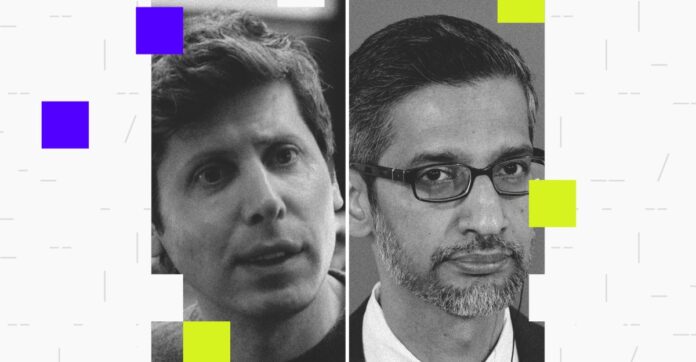The Battle for AI Supremacy
The leaders of OpenAI and Google have been closely watching each other’s moves since ChatGPT took the world by storm. With Google’s I/O conference underway, the question on everyone’s mind was whether OpenAI’s CEO, Sam Altman, would try to upstage the event like he did last year. This time, OpenAI dropped its bombshell the day after the conference.
A Delightfully Petty Move
OpenAI’s acquisition of the "io" hardware division of Jony Ive’s design studio, LoveFrom, is a clever move that has shifted the conversation away from Google’s strong showing at I/O. The name "io" stands for "input output," and it’s a deliberate choice that has raised eyebrows. The partnership between Ive and Altman is a significant development, with Ive’s team set to assume deep design and creative responsibilities across OpenAI.
What the Deal Means
OpenAI is paying $6.5 billion in equity to hire roughly 55 people from LoveFrom, including ex-Apple design leaders Evans Hankey, Tang Tan, and Scott Cannon. They will report to Peter Welinder, a veteran OpenAI product leader who reports directly to Altman. The rest of LoveFrom’s designers, including legends like Mike Matas, will stay with Ive, who is currently designing the first-ever electric Ferrari and advising Airbnb CEO Brian Chesky.
The Future of Computing
When LoveFrom’s existing client work is wrapped up, Ive and his design team plan to focus solely on OpenAI while staying independent. OpenAI already has open "future of computing" roles for others to join the io team it brought over. One job listing for a senior research engineer says the ideal candidate has already "spent time in the weeds teaching models to speak and perceive." The rough timeline that led up to this moment goes back two years, when Altman and Ive met and decided to work on hardware together.
Google’s Response
Google, meanwhile, was firing on all cylinders at I/O. The company is rolling out AI Mode in Google Search widely and is leveraging its immense amount of personal data to differentiate its Gemini model. If Gemini can hook into Gmail, Workspace, YouTube, and other Google services in a way that people want to use, it will likely keep many users from shifting to ChatGPT.
The State of the Industry
After meeting with Google employees, it’s clear that the company doesn’t see a catastrophe on the horizon. There’s a recognition that the ability to buy out distribution for search on Apple devices is probably coming to an end, but Gemini is approaching 500 million monthly users. ChatGPT is undoubtedly eating into search, but Google has shown a willingness to modernize search faster than expected.
Other Players in the Game
Anthropic, another AI company, held an event to debut its Claude 4 models, which it claims are the world’s best for coding. Microsoft Build was overshadowed by protests, but the company made several interesting announcements, including Elon Musk’s Grok model coming to Azure. Google also showcased its smart glasses prototype, which had a small, low-res waveguide in the center of each lens that showed voice interactions with Gemini.
Conclusion
The battle for AI supremacy is heating up, with OpenAI, Google, and other players vying for dominance. While Google’s models may be technically superior, OpenAI is winning the mindshare and buzz war. The partnership between Ive and Altman is a significant development, and it will be interesting to see how it plays out in the coming months. One thing is certain – the future of computing is going to be shaped by these companies, and it’s going to be a wild ride.

